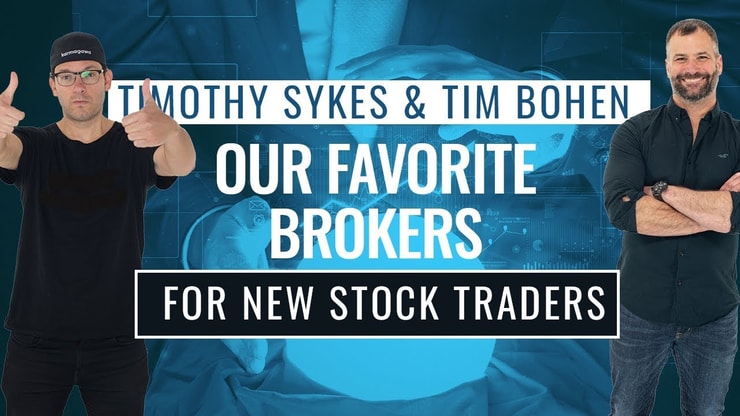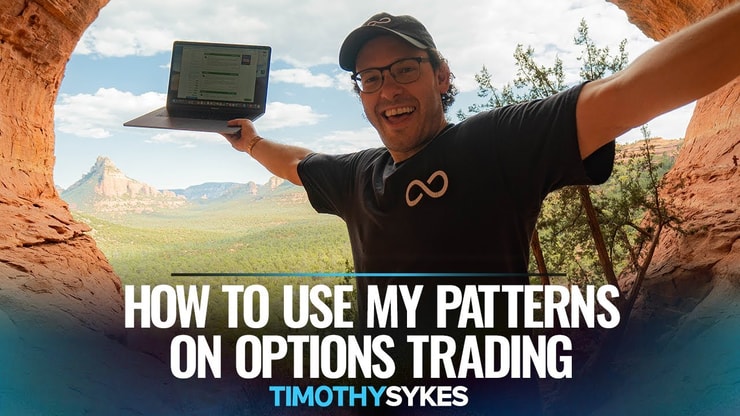Learning how to trade options on Schwab means you’ll have the biggest broker in the world on your side. And it’s about to get even bigger.
Charles Schwab and Co., Inc. recently acquired TD Ameritrade. This means the powerful thinkorswim trading platform will be coming to Schwab within the year — giving Schwab traders one more tool at their disposal.
That also means that TD Ameritrade options traders should pay attention to Schwab’s options rules. The smaller broker is merging more and more of its services into the Charles Schwab establishment.
How do you choose the right broker? First you need to learn about your options — which is what this article is about.
Read on to learn more about Schwab and see if it’s right for you.
Table of Contents
Trading on Charles Schwab

Schwab is a reliable broker fit for any kind of trader or investor. Whatever your experience level, you’ll find something to like on Schwab. It offers numerous assets to trade and invest in. It offers stocks, mutual funds, exchange-traded funds, options, and more.
It’s got a good reputation, too. Schwab manages over $7 trillion worth of client assets. This means a lot of people trust Schwab with their money.
What makes Schwab a favorite among its customers? Here’s a list of its most prominent features:
- No minimum deposits
- Commission-free trading
- In-depth research tools
- Fractional share trading
- 24/7 email, phone, and chat customer support
- In-person support at branch offices
- Multiple desktop and mobile platforms
- Various tradable assets
Curious about other brokerages? Read my reviews of Questrade, Interactive Brokers, and E-Trade.
Benefits of Trading Options Using Schwab
The benefits of trading options on Schwab start with the mega-broker’s size. There are plenty of bonuses that come with that…
Great Website Security and Performance
Charles Schwab & Co., Inc. has one of the safest and best-performing websites in the brokerage industry. Even though every U.S. brokerage account comes with SIPC protection, there are levels to the kind of trustworthiness brokers bring. Schwab is near the top.
Reliable Option Trade Execution
Schwab provides fast trade executions with its “Schwab Order Execution Advantage,” promising an average execution speed of 0.03 second. This is one of the biggest differences between brokers, and Schwab acquits itself well.
More Breaking News
- Huntington Bancshares Faces Earnings Miss, Market Considers Impacts
- Credo Technology Stock Skyrockets After Impressive Fiscal Performance
- TRX Gold Shines with Strong Q1 Earnings and Raised Price Targets
- Coeur Mining’s Acquisition of New Gold Approved by British Columbia Court
Low Transaction Costs
Like most brokers, there are no commissions for ETF, stock, and options trading on Charles Schwab & Co., Inc. You still need to pay a $0.65 contract fee on options, which is standard for most full-service brokers.
Dedicated Options Trading Software
Schwab’s StreetSmart Edge provides an advanced trading platform for options traders. Some time in 2023, Schwab will also provide its traders with access to thinkorswim, the powerful trading platform currently available to TD Ameritrade traders. This will give Schwab users a choice between two of the best options trading platforms in the business.
But if you’re shopping for trading platforms, get StocksToTrade in the mix. It’s my favorite trading platform (and the one I helped design).
Give StocksToTrade a try today — a 14-day trial is only $7!
Helpful Customer Support
One of the advantages of an established full-service broker like Schwab is its top-notch customer support. Schwab offers 24/7 phone, email, and chat assistance. You can also visit a branch office during the weekdays for in-person customer support.
Access to an Options Specialist Team
Need help with your options trades? You can contact Schwab’s options professionals during trading hours. They have decades of trading experience and will help you to make the best use of your Schwab account.
Steps to Start Trading Options on Schwab

Ready to trade options on Schwab? Here are the four basic steps:
1. Open a Schwab Account
The first thing to do is open a Schwab brokerage account, which takes around 10 minutes. It’s free, with zero service fees and no minimum balance required.
2. Log in to a Schwab App
Once you have an account, log onto the website, StreetSmart Edge, or the Schwab Mobile trading app. Make sure to fund your account before proceeding. Schwab doesn’t have a minimum deposit, just make sure you have enough to trade.
3. Select Options on the App
You need to apply for approval before you trade options with Schwab. Complete Schwab’s options agreement and approval questionnaire. Schwab usually takes 5 to 10 business days to approve your options application.
Schwab will assign you an options approval level depending on your experience. Schwab’s approval levels range from 0 to 3. Each subsequent level gives access to more advanced strategies.
Users at level 0 can use basic strategies like covered calls and puts. Higher-level traders can access advanced strategies like spreads and uncovered calls.
4. Start Trading Options
Once you’re approved, you’re ready to trade options! Go into the stock positions page and select Option Chains. Select your option type and expiration date, then double-check your trade ticket.
Trading options is easy — it’s becoming profitable that’s hard. Here are my rules for working towards that goal:
- Don’t copy other traders’ options trades. No one has the same goals, risk, and strategy you have. You need to understand their lessons and adapt them to yourself, which comes in the next point…
- Learn from experienced options traders. Join online communities and share options strategies with traders of various experience levels. This will help you understand what makes a successful trader.
- Make your own stock watchlists. Watchlists help you spot potential trade opportunities easier and prepare you to execute them.
- Record every options trade to learn how you can improve. Review each trading day to determine what went wrong and what went right
Learning from successful options traders is an especially important tip. This can help you cut out some trial and error, and get a head start on your trading journey.
If you’re searching for a mentorship program, check out my former student Mark Croock’s Evolved Trader. He’s taken my penny stock strategies and applied them to options trading — making $3.9 million in career earnings in the process!
Here’s a sneak peek of Mark’s curriculum:
How to Trade Options on Charles Schwab FAQs
Learning how to trade options on Schwab is a piece of cake. Let’s get some of the vegetables out of the way…
How much money do I need to trade options on Charles Schwab?
You can trade options on Charles Schwab without a minimum investment. But you’re limited to basic strategies like buying and writing covered options.
You’ll need a margin account for higher levels of options trading, with a $2,000 minimum deposit.
Is options trading on Charles Schwab free?
Options trading on Charles Schwab isn’t free. There are no commissions, but you still need to pay the $0.65 contract fee, which is an industry-wide standard.
Can I day trade options on Schwab?
Schwab allows you to day trade options.





Leave a reply